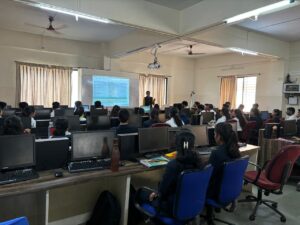
Improving student results in ZIBACAR involves a multifaceted approach addressing various aspects of the educational experience. Institute implements following strategies:
Academic Support
- Offer peer tutoring and professional tutoring services to help students with challenging subjects.
- Encourage the formation of study groups to foster collaborative learning.
- Provide workshops on study skills, time management, and exam preparation.
Curriculum and Teaching
- Regularly update the curriculum to ensure it is relevant and aligned with industry standards.
- Incorporate active learning techniques such as problem-based learning, case studies, and interactive activities.
- Utilize educational technology tools to enhance learning experiences (e.g., online simulations, interactive software).
Assessment and Feedback
- Implement frequent formative assessments to monitor student progress and provide timely feedback.
- Provide constructive feedback on assignments and exams to guide improvement.
Student Engagement
- Promote participation in extracurricular activities to develop soft skills and enhance overall student engagement.
- Establish mentorship programs where senior students or alumni can guide juniors.
- Provide robust career counseling and placement services to align academic pursuits with career goals.
Health and Well-being
- Offer counseling services to support students’ mental health and well-being.
- Promote wellness programs, including physical fitness activities, stress management workshops, and nutritional advice.
Faculty Development
- Invest in continuous professional development for faculty to keep them updated with the latest teaching methodologies and subject knowledge.
- Encourage peer observations and feedback among faculty to improve teaching practices.
Infrastructure and Resources
- Ensure that the library is well-stocked with current academic resources, including e-books and journals.
- Maintain up-to-date laboratories and equipment to provide hands-on learning experiences.
- Implement and optimize learning management systems for better organization and delivery of course materials.
Collaboration and Partnerships
- Establish partnerships with industry for internships, guest lectures, and real-world project opportunities.
- Engage alumni to contribute to curriculum development, mentoring, and providing job opportunities.
Monitoring and Evaluation
- Conduct regular reviews of academic programs and student performance to identify areas for improvement.
- Create feedback loops involving students, faculty, and administration to continuously improve the educational process.
- Ensure compliance with accreditation standards and continuously strive to exceed them.
Implementing these strategies can create a supportive, engaging, and effective learning environment that helps improve student outcomes in colleges.

